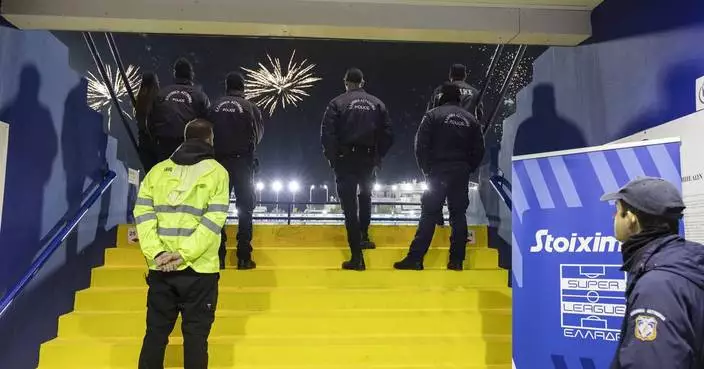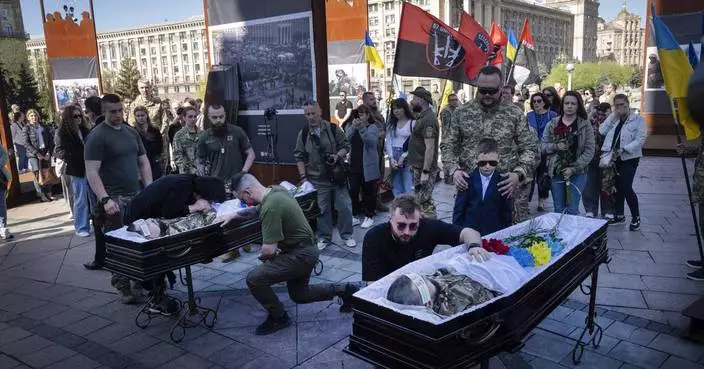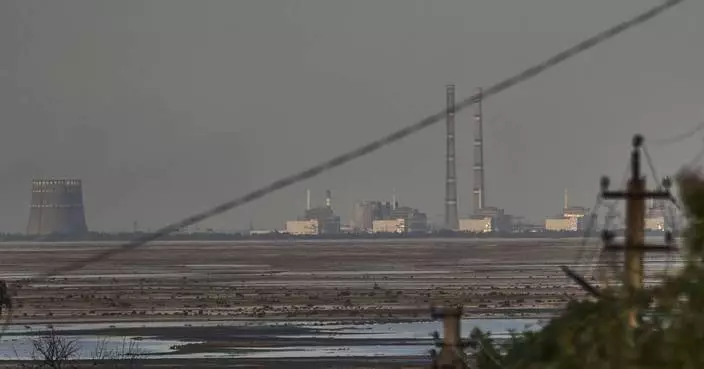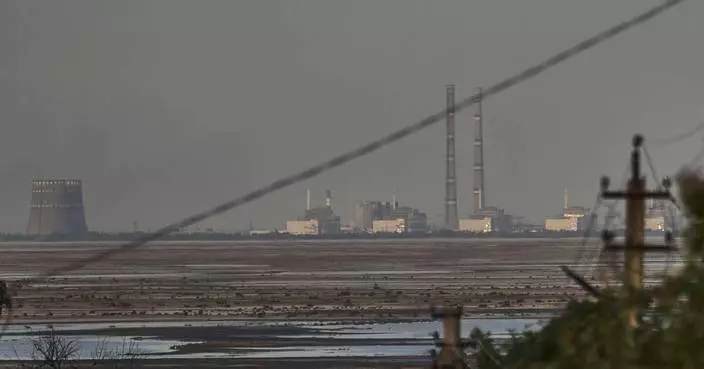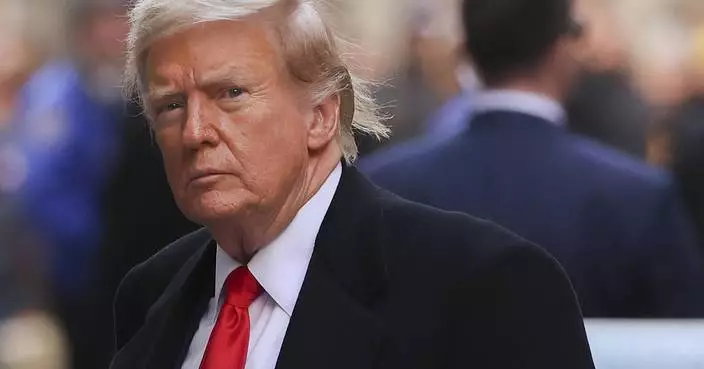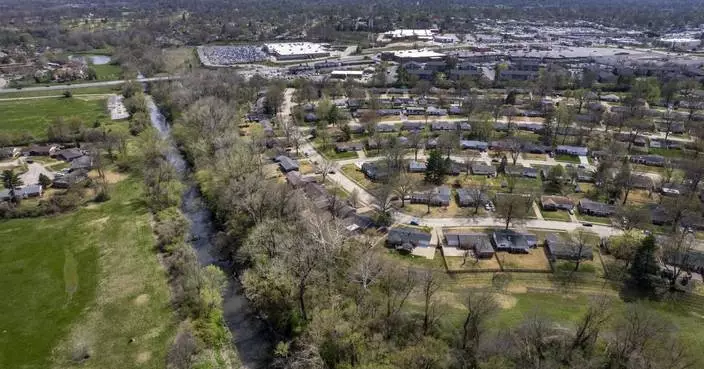Fifty countries on Wednesday signed a treaty to ban nuclear weapons, a pact that the world's nuclear powers spurned but supporters hailed as a historic agreement nonetheless.
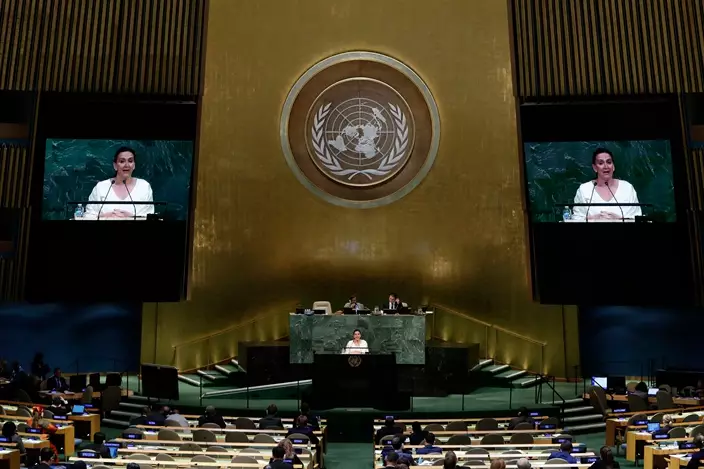
Vice-President Gabriela Michetti of Argentina addresses the United Nations General Assembly Wednesday, Sept. 20, 2017, at the United Nations headquarters. (AP Photo/Frank Franklin II)
"You are the states that are showing moral leadership in a world that desperately needs such moral leadership today," Beatrice Fihn, executive director of the International Campaign to Abolish Nuclear Weapons, said as a signing ceremony began.
Before the day was out, 50 states as different as Indonesia and Ireland had put their names to the treaty; others can sign later if they like. Guyana, Thailand and the Vatican also have already ratified the treaty, which needs 50 ratifications to take effect among the nations that back it.
They would be barred from developing, testing, producing, manufacturing, otherwise acquiring, possessing or stockpiling nuclear weapons "under any circumstances."
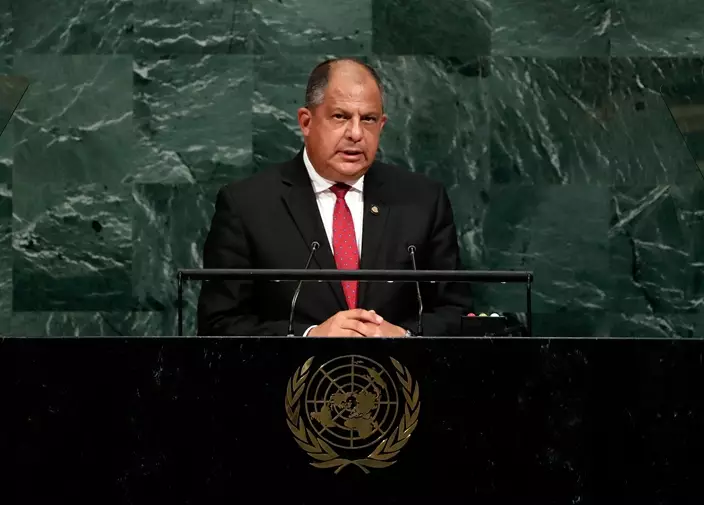
Costa Rica's President Luis Guillermo Solís Rivera addresses the United Nations General Assembly, Tuesday, Sept. 19, 2017, at the U.N. headquarters. (AP Photo/Frank Franklin II)
Seven decades after the United States dropped two atomic bombs on Japan during World War II — the only use of nuclear weapons — there are believed to be about 15,000 of them in the world today. Amid rising tensions over North Korea's nuclear and missile tests, U.N. Secretary-General Antonio Guterres said Tuesday that the threat of a nuclear attack is at its highest level since the end of the Cold War.
"This treaty is an important step towards the universally held goal of a world free of nuclear weapons," he said Wednesday.
Supporters of the pact say it's time to push harder toward eliminating atomic weapons than nations have done through the nearly 50-year-old Nuclear Non-Proliferation Treaty.
Under its terms, non-nuclear nations agreed not to pursue nukes in exchange for a commitment by the five original nuclear powers — the U.S., Russia, Britain, France and China — to move toward nuclear disarmament and to guarantee other states' access to peaceful nuclear technology for producing energy.
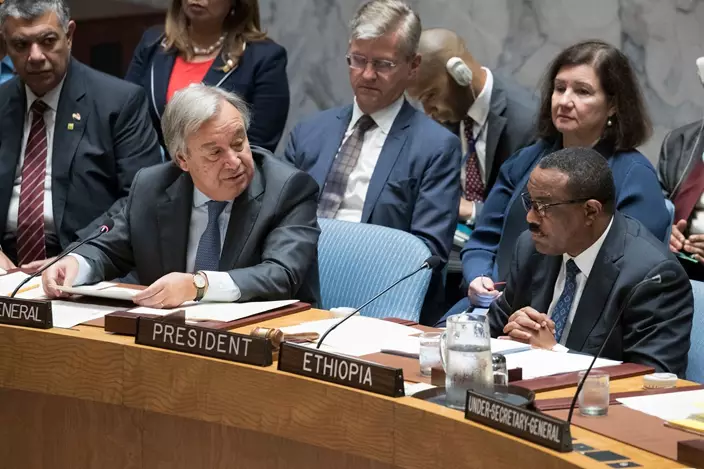
United Nations Secretary-General Antonio Guterres, looks at Ethiopian Ambassador to the United Nations and current President of the Security Council Tekeda Alemu as he speaks during a high level Security Council meeting on United Nations peacekeeping operations, Wednesday, Sept. 20, 2017 at U.N. headquarters. (AP Photo/Mary Altaffer)
More than 120 countries approved the new nuclear weapons ban treaty in July over opposition from nuclear-armed countries and their allies, who boycotted negotiations.
The U.S., Britain and France said the prohibition wouldn't work and would end up disarming their nations while emboldening "bad actors," in U.S. Ambassador Nikki Haley's words.
French Foreign Minister Jean-Yves Le Drian has called the treaty "wishful thinking" that is "close to irresponsible." The nuclear powers have suggested instead strengthening the nonproliferation treaty, which they say has made a significant dent in atomic arsenals.
Brazil was the first country to sign onto the ban Wednesday, followed by nations from Algeria to Venezuela.
"Those who still hold nuclear arsenals, we call upon them to join this date with history," Costa Rican President Luis Guillermo Solis said as he prepared to sign.
UNITED NATIONS (AP) — Russia and Ukraine on Monday traded blame before the United Nations Security Council for the attacks on Europe’s largest nuclear power plant, which the head of the International Atomic Energy Agency said have put the world “dangerously close to a nuclear accident.”
Without attributing blame, IAEA Director General Rafael Mariano Grossi said his agency has been able to confirm three attacks against the Zaporizhzhia Nuclear Power Plant since April 7.
“These reckless attacks must cease immediately,” he told the Security Council. “Though, fortunately, they have not led to a radiological incident this time, they significantly increase the risk … where nuclear safety is already compromised.”
The remote-controlled nature of the drones that have attacked the plant means that it is impossible to definitively determine who launched them, Grossi told reporters after the meeting.
“In order to say something like that, we must have proof,” he said. “These attacks have been performed with a multitude of drones.”
Zaporizhzhia sits in Russian-controlled territory in southeastern Ukraine and has six nuclear reactors.
Fears of a nuclear catastrophe have been at the forefront since Russian troops occupied the plant shortly after invading in February 2022. Continued fighting between Russian and Ukrainian forces — as well as the tense supply situation at the plant — have raised the specter of a disaster.
Ukraine and its allies on Monday again blamed Russia for dangers at the site, with the United States saying, “Russia does not care about these risks.”
“If it did, it would not continue to forcibly control the plant,” U.S. deputy ambassador Robert Wood told the Security Council, which met at the initiative of the U.S. and Slovenia.
Russia, for its part, said Ukraine was to blame for the attacks.
“The IAEA’s report does not pinpoint which side is behind the attacks,” Russia’s U.N. Ambassador Vassily Nebenzia said. “We know full well who it is.”
“Over the last few months, such attacks not only resumed,” Nebenzia said, “they significantly intensified.”
Ukraine’s ambassador to the U.N., Sergiy Kyslytsya, called the attacks “a well-planned false flag operation by the Russian Federation,” which he alleged Russia had designed to distract the world from its invasion of its neighbor.
The Zaporizhzhia facility is one of the 10 biggest nuclear plants in the world. Fighting in the southern part of Ukraine where it is located has raised the specter of a potential nuclear disaster like the one at Chernobyl in 1986, where a reactor exploded and blew deadly radiation across a vast area.
Neither Russia nor Ukraine in recent months has been able to make significant advances along the 1,000-kilometer (620-mile) front line crossing eastern and southern Ukraine. Drones, artillery and missiles have featured heavily in what has become a war of attrition.
Russia and Ukraine have frequently traded accusations over the Zaporizhzhia plant.
The most recent strikes did not compromise the facility, which is designed to withstand a commercial airliner crashing into it, the IAEA said.
The plant’s six reactors have been shut down for months, but it still needs power and qualified staff to operate crucial cooling systems and other safety features.
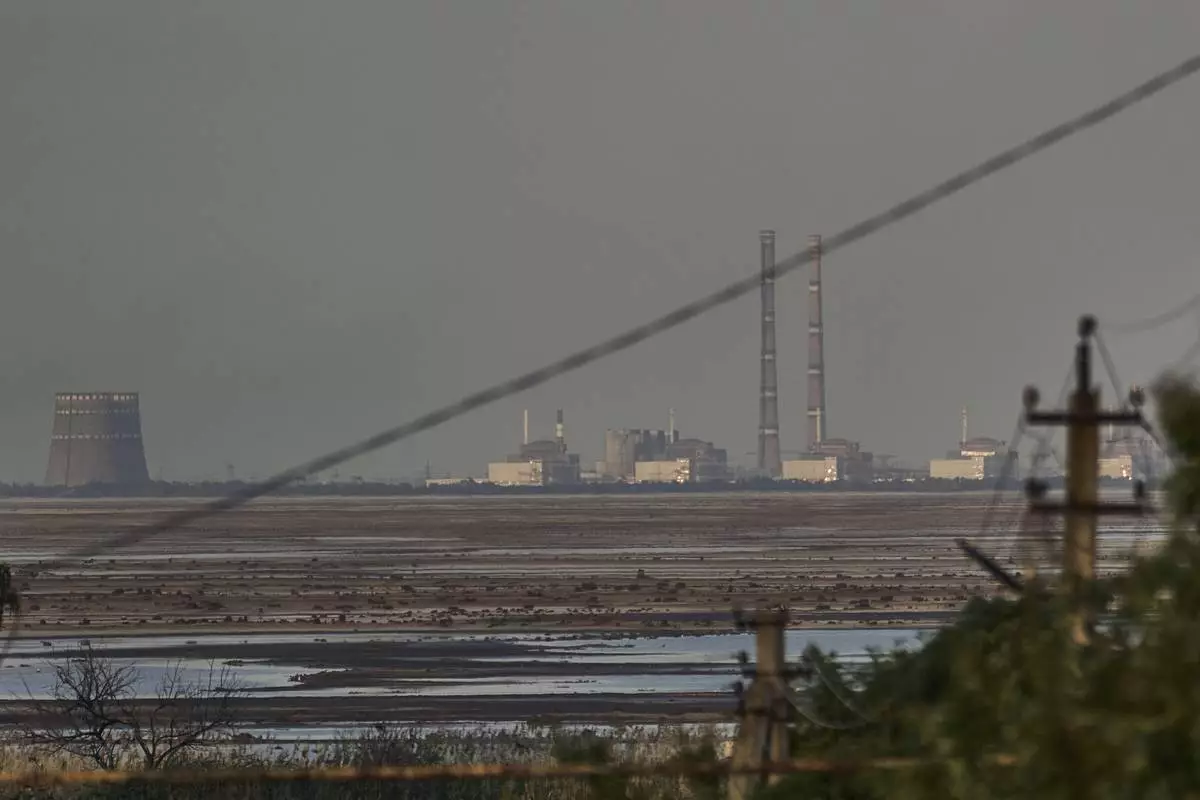
FILE - The Zaporizhzhia nuclear power plant, Europe's largest, is seen in the background of the shallow Kakhovka Reservoir after the dam collapse, in Energodar, Russian-occupied Ukraine, Tuesday, June 27, 2023. Officials at the Russian-controlled Zaporizhzhia Nuclear Power Plant said that the site was attacked Sunday April 7, 2024, by Ukrainian military drones, including a strike on the dome of the plant’s sixth power unit. (AP Photo/Libkos, File)
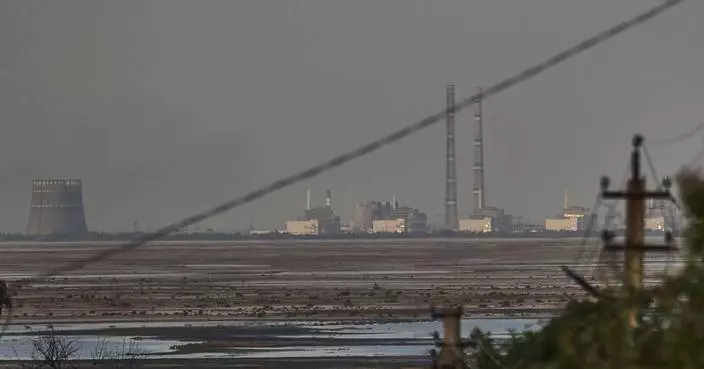
IAEA warns that attacks on a nuclear plant in Russian-controlled Ukraine put the world at risk
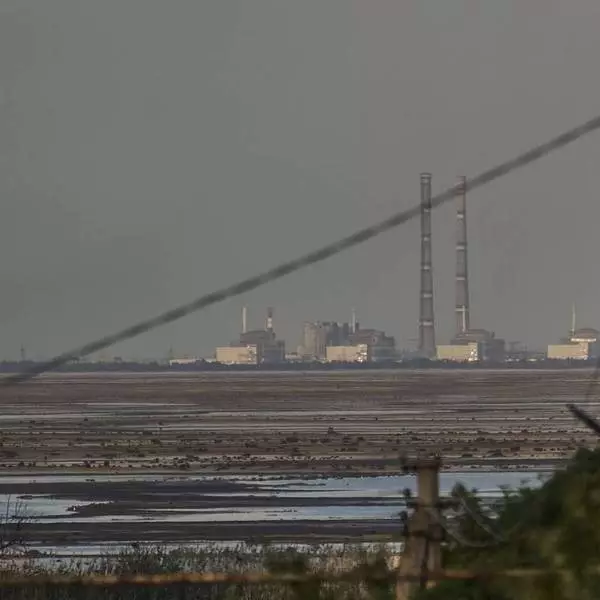
IAEA warns that attacks on a nuclear plant in Russian-controlled Ukraine put the world at risk









